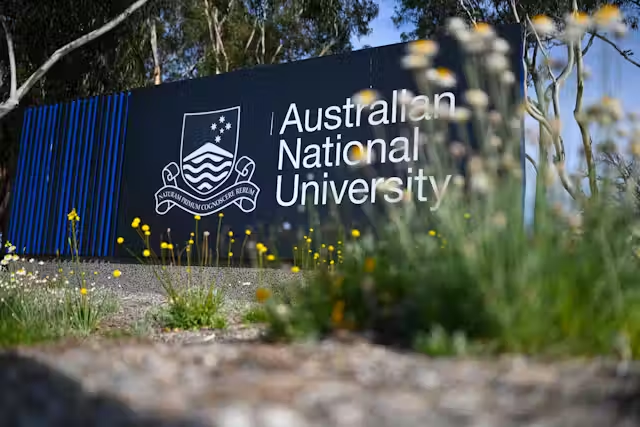History, like an age-old tapestry, weaves together the threads of the past, present, and future. In an era where the sands of time seem to shift with unprecedented speed, the relevance of historical studies beckons us to unravel its timeless wisdom.This article embarks on a journey through the corridors of history, exploring how the echoes of the past resonate in our contemporary world, shedding light on the relevance of historical studies in shaping our present and guiding our future.
Historical Context and Contemporary Challenges
History serves as a roadmap through time. It sheds light on patterns, cycles, and mistakes, enabling us to better navigate the present and anticipate the future. While contemporary challenges may manifest uniquely, they frequently enough have historical roots.Studying past events allows us to glean insights into the underlying causes, motivations, and potential solutions. By exploring historical examples of resilience, adaptability, and progress, we can draw upon the lessons learned by our predecessors. The depth of historical understanding empowers individuals and societies alike to make informed decisions, foster empathy, and forge a more harmonious path forward.
Lessons from the Past for Future Decision-Making
History, like a priceless mirror, offers invaluable reflections of the past, guiding us towards enlightened decision-making for the future. By delving into historical accounts, we gain a profound understanding of human nature, civilizations’ rise and fall, and recurring challenges. It illuminates the consequences of past actions, allowing us to avoid repeating the same mistakes or overlooking potential pitfalls.In the tapestry of human experience, history serves as a repository of collective wisdom, offering insights into the interplay between decisions, events, and their long-term impact. By embracing the lessons of the past, we empower ourselves to navigate the complexities of the present and chart a more informed course for our collective destiny.
Historical Perspectives on Pressing Global Issues
History serves as an invaluable lens through which to not only comprehend the past but also to illuminate the complexities of present-day global issues. By examining historical precedents and analyzing their consequences, we gain crucial insights into the root causes and potential solutions to challenges such as:
- Climate Change: Studying the historical evolution of human activities and their impact on the environment provides a roadmap for crafting effective strategies to mitigate climate change.
- Economic Inequality: Historical analysis of economic systems and their impact on wealth distribution informs current efforts to promote equitable growth and reduce disparity.
- Resource Scarcity: Understanding the historical factors shaping resource allocation and consumption patterns aids in developing sustainable strategies for managing scarce resources.
- Conflict and Peacebuilding: Historical studies of conflict resolution and post-conflict transitions inform efforts to prevent and mitigate violence and promote peaceful coexistence.
Enriching Modern Life through Historical understanding
Historical studies offer invaluable insights that illuminate our present and shape our future. by delving into the tapestry of past events, we gain a deeper comprehension of human nature, societal dynamics, and the forces that have shaped the world we inhabit.
Unveiling Patterns of Human Behavior: History provides a panoramic view of human experience, revealing recurring patterns of behavior, aspirations, and folly. this knowledge empowers us to better understand current events and anticipate future challenges.
Learning from the Wisdom of the Past: The study of history allows us to tap into the collective wisdom accumulated over centuries. We can learn from the triumphs and mistakes of our predecessors, gaining insights into effective governance, sustainable resource management, and the human condition itself.
Appreciating Cultural Diversity: History exposes us to the richness and diversity of human cultures, broadening our perspectives and fostering empathy. by understanding the origins and evolution of diffrent civilizations, we develop a deeper appreciation for the kaleidoscope of human experiences and ways of life.
Relevant Lessons for Contemporary Issues: Historical analysis provides a lens through which we can examine complex contemporary issues, such as globalization, climate change, and social inequality. By studying how societies have grappled with similar challenges in the past,we can draw valuable lessons and inform our present-day decision-making.
* Personal Enrichment and Critical Thinking: Engaging with history fosters critical thinking skills,analytical reasoning,and curiosity. it encourages us to question assumptions, examine evidence, and develop nuanced perspectives on the world around us, enriching our personal lives and making us more informed and responsible citizens.
In Retrospect
As we delve into the tapestry of time, we find threads that bind us to the past and shape our present. Historical studies, far from being mere relics of bygone eras, play a pivotal role in illuminating our path forward. Like a compass navigating the sea of human experience, history guides us through the complexities of the present and empowers us to navigate the uncharted waters of the future. By understanding the forces that have shaped societies, cultures, and individuals, we gain the wisdom to make informed decisions, avoid past mistakes, and embrace opportunities that lie ahead. As we close the pages of this article, let us embrace the enduring relevance of historical studies, recognizing that the echoes of the past forever reverberate in the actions and aspirations of today and tomorrow.




